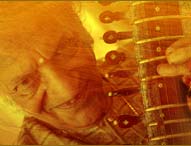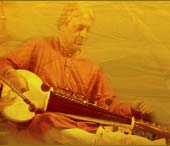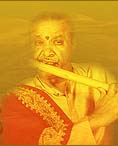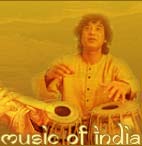Born On: 1506
Born In: Gwalior
Died On: 1589
Career: Classical singer
Nationality: Indian
Tansen is regarded as the Navratna in the court of Emperor Akbar and the Guru of all Gurus in the Indian classical music that dominates the entire North India. He was born in a Hindu family in Gwalior. His father was a famous poet Mukund Mishra. Till the age of 5, Tansen was just like every mediocre child but it was then when he showed his musical talent that was recognized by his guru Haridasa. Tansen, as we all know, was not just a singer but also a well-known poet who had composed many couplets. When Tansen was in the court of Akbar, he started his composition of new ragas or melodies based on Indian Classical Music. He is believed to be the father of Hindustani Music. Tansen received the prefix "Miyan" from Emperor Akbar. His 'Sangeeta Sara' and 'Rajmala' are important documents on music. He also popularized the 'Drupad' style of music.
Early Life
Tansen was born into a Hindu Gaur family in a village near Satna. When he was born, he was named by his family as Ramtanu, and was fondly called Tannu and Mukul. His guru, a renowned singer of those times, helped Tansen recognize his versatility. Tansen firstly showcased his talent to King Ramachandra of Mewa Bandhavgarh. Later on, he got the opportunity to exhibit his versatility and skill in front of the Mughal emperor Akbar. Tansen concentrated more on creating Hindustani classical ethos because he was born at the time when Persian and Central Asian motifs were being fused with Hindustani Classical music.
Career
Tansen remained a disciple to Swami Haridas for quite a long time who was a legendary composer from Vrindavan and also a part of the Gwalior court of Raja Man Singh Tomar. He specialized in the Dhrupad style of singing. How Tansen met Swami Haridas is debatable. While some claim that the two first met when Haridas was passing through the forests and Ramtanu, then a five-year old impressed the legendary musician with his imitation of a tiger, others say that it was Tansen's father who had taken Tansen to the musician's place. It was because of Swami Haridas that Tansen acquired his love for dhrupad along with his interest in compositions in the local language. It is also said that during his preparation to becoming a great singer, Tansen's father passed away that made him give up everything and he chose to return home where he used to sing at a local Shiva temple.
Muhammad Ghaus became his spiritual mentor and introduced him to Islam. He also married Husseini which means the most beautiful one, who in turn, blessed him with five children and the interesting fact is that all of them went on to become great musicians. Tansen's association with Akbar leads to arguable stories. Some believe that Tansen had joined the court of King Ramachandra Baghela of Rewa, India, where he remained from 1555-1562. Akbar, upon hearing the former's musical prowess, sent his emissary Jalaluddin Qurchi to Ramachandra, who had little choice but to agree and Tansen went to Akbar's court in 1562. Another legend states that Akbar's daughter Meherunnissa was charmed by Tansen which was why Tansen came to Akbar's court. It also states that Tansen converted to Islam from Hinduism, on the eve of his marriage with Akbar's daughter.
It has been reported that Tansen was presented with one lakh gold coins in his first performance at Akbar's court. The glory never for once dipped as Tansen went on to become one of the treasured 'Navaratnas' (lit. nava=nine, ratna=jewel) of the latter's court. It was Akbar who gave Tansen the honorific title of 'Miyan'. In fact his voice was so melodious that it's often said to have created miracles while Tansen was singing. For instance, Tansen could beckon the rains by Raga Megh Malhar and light up fires with Raga Deepak. Such was the power of his music that when he used to sing in the court of Akbar, candles used to light up automatically. There can never be any sort of comparison when Tansen stands in the picture along with his style of singing. His contribution to the world of music is priceless and is still worshipped by leading singers and composers of the world.
Contribution To Music
Tansen's earlier training with Swami Haridas in Bhakti tradition and his later interaction with the Ghaus in Sufi tradition led to a fusion of the two which was prominently visible in Tansen's work. Both the traditions had considerable philosophical and stylistic overlaps. His musical repertoire consists of several ragas. Some of his notable works include Miyan ka Bhairav, Darbari Kanada, Miyan ki Malhar, Miyan ki Todi, Rageshwari, Darbari Todi and many more. The credit for initiating the Dhrupad style of singing goes totally to Tansen and his teacher or guru Swami Haridas.Tansen is also known to have been an inspiration for many. He influenced other singers in the Gwalior court and also the musically proficient queen, Mriganayani
Death
The greatest of all musicians, Tansen left for the heavenly abode in the year 1589. Tansen was buried in the mausoleum complex of his Sufi guru Shaikh Muhammad Ghaus in Gwalior.
Legacy
The legends of music also do not prefer to compare Tansen with anyone apart from the prolific Sufi composer, Amir Khusro or a traditional composer like Sant Kabir when it comes to making an influence. Several of his raga compositions have become mainstays of the Hindustani/Ancient Pakistani tradition, and these are often prefaced with Miyanki ("of the Miyan"), e.g. Miyan ki Todi, Miyan ki Malhar, Miyan ki Mand, Miyan ka Sarang. In addition he is the creator of major ragas like Darbari Kanada, Darbari Todi, and Rageshwari. The popular Sangeeta Sara and Rajmaala belong to Tansen as their author.
Timeline
1506: Tansen was born.
1512: Became the disciple of Swami Haridas.
1555: Joined the court of King RamachandraBaghela of Rewa.
1562: Joined Akbar's court.
1589: He passed away.






